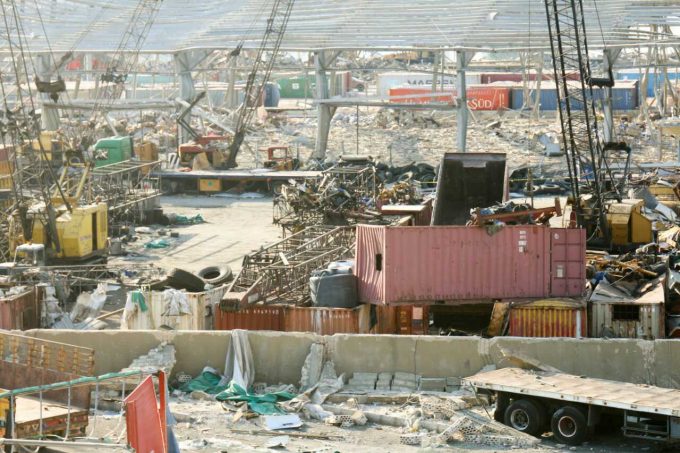Box volumes are back at Beirut Port – but so is corruption and instability
Three years after the port explosion in Beirut, container shipping has returned to normal – but ...
TFII: SOLID AS USUALMAERSK: WEAKENINGF: FALLING OFF A CLIFFAAPL: 'BOTTLENECK IN MAINLAND CHINA'AAPL: CHINA TRENDSDHL: GROWTH CAPEXR: ANOTHER SOLID DELIVERYMFT: HERE COMES THE FALLDSV: LOOK AT SCHENKER PERFORMANCEUPS: A WAVE OF DOWNGRADES DSV: BARGAIN BINKNX: EARNINGS OUTODFL: RISING AND FALLING AND THEN RISING
TFII: SOLID AS USUALMAERSK: WEAKENINGF: FALLING OFF A CLIFFAAPL: 'BOTTLENECK IN MAINLAND CHINA'AAPL: CHINA TRENDSDHL: GROWTH CAPEXR: ANOTHER SOLID DELIVERYMFT: HERE COMES THE FALLDSV: LOOK AT SCHENKER PERFORMANCEUPS: A WAVE OF DOWNGRADES DSV: BARGAIN BINKNX: EARNINGS OUTODFL: RISING AND FALLING AND THEN RISING

In what looks, on the face of it, to be a classic case of the criminalisation of seafarers, Maritime Executive reports that Interpol has issued an arrest warrant for the master of the Rhosus, the cargo ship that brought the lethal consignment of ammonium nitrate, the cause of last year’s tragic explosion in the port of Beirut. Its owner abandoned the vessel while it was docked in Beirut in 2013-2014, and its cargo was subsequently unloaded by port officials and stored in a nearby warehouse. “The former captain of the freighter Rhosus has been flagged for extradition in connection with the blast caused by the vessel’s final cargo – even though that cargo was seized by port officials seven years ago, the ship sank three years ago and the captain has long since retired,” Maritime Executive reports.
Comment on this article